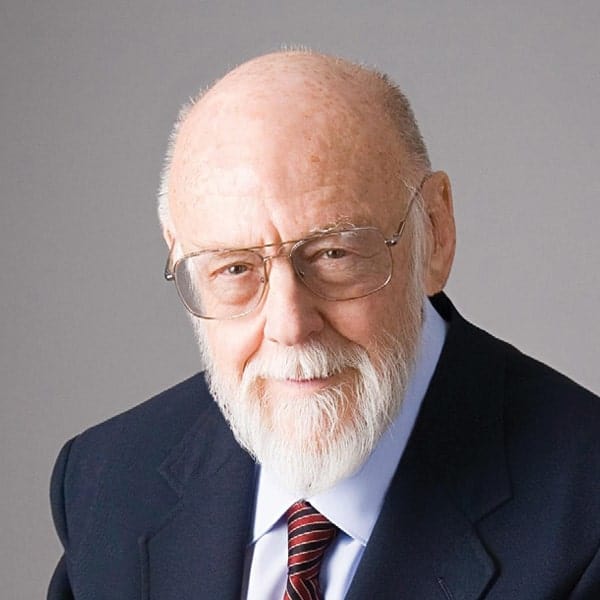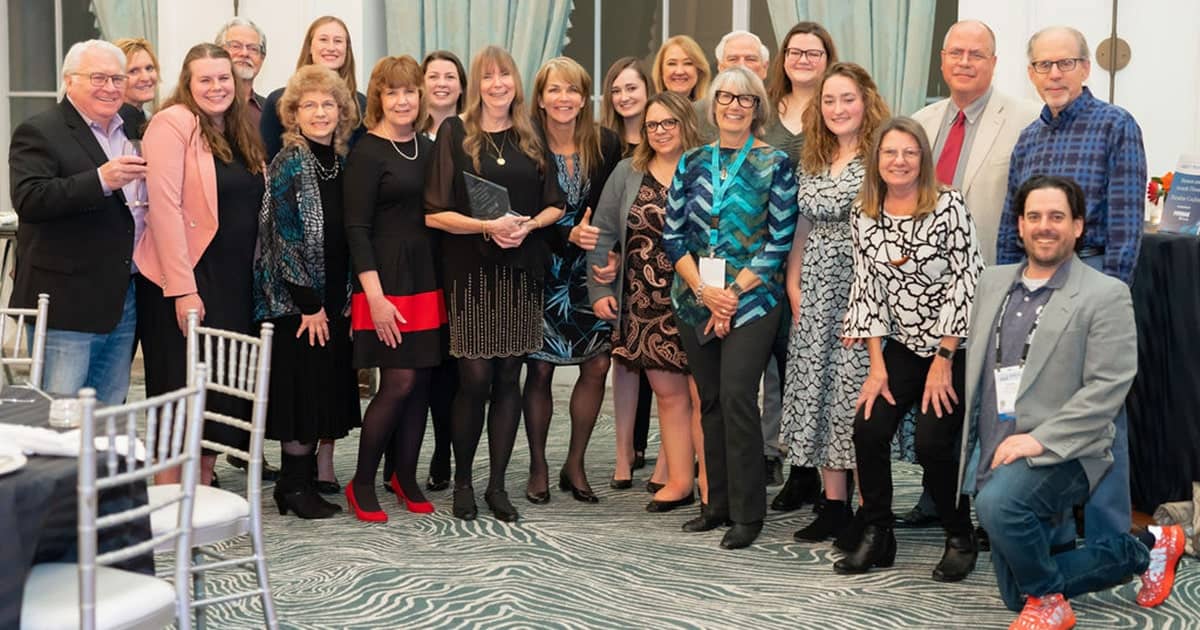In his address to those attending the first annual convention of the American Academy of Audiology on Kiawah Island, Dr. James Jerger finished by saying,
Let us say, in a clear voice, to those giants of the past upon whose shoulders we now stand, your work was not in vain. We have built upon your solid foundations. The field you conceived is a reality. We, the heirs of your efforts, are proud of the unified profession we have jointly created.

Dr. Jerger was our giant who contributed so remarkably to both the scientific basis and clinical practice of our profession. Today, audiology lost a giant. Dr. Jerger passed away on July 24 at the age of 96 years.
James F. Jerger, PhD, was the Founder of the American Academy of Audiology and served as its first president. He created the Journal of the American Academy of Audiology and served as its first editor-in-chief for more than 25 years. He was a gifted and prolific writer, a renowned scientist, and a beloved teacher and colleague.
In the Foreword to Dr. Jerger’s book Audiology in the USA, renowned scientist Charles Berlin states, “It is to Jim we owe the popular acceptance of much of our modern audiologic practice differentiating cochlear from retrocochlear disease…with the ubiquitous test battery principle, which is now the cornerstone of good audiology.” He adds, “Jim Jerger has helped us reach a new place, a new promised land where we have all the ‘hallmarks’ of a robust and growing profession with a remarkable history.” Dr. Jerger was an excellent scientist with the strongest theoretical background, but one who had unmatched clinical credibility. Jerger once said “… you cannot communicate your research findings to other people unless you write about them in a way that allows other people to understand what you are talking about.” Jerger lived up to his own lofty expectations.
Dr. Jerger was born in Milwaukee, Wisconsin. He relocated to the Chicago area in the late 1940s to attend Northwestern University. There, he received his baccalaureate degree in 1951, his master’s degree in audiology in 1952, and his PhD in audiology in 1954. He joined the faculty after graduation and quickly climbed the ranks, becoming director of the Audiology Research Laboratory while still in his 20s.
Dr. Jerger left Northwestern in 1961 and spent a year at the VA in Washington, DC, before moving to Houston, Texas, to become director of research at the Houston Speech and Hearing Center. After a few short years, he moved across the street and became professor of audiology and director of the Division of Audiology and Speech Pathology at the Baylor College of Medicine.
Dr. Jerger spent the next 30 years of his career at the Baylor College of Medicine, building a powerful research program, a strong clinical service, and a prominent academic program. Many credit the outcomes from those Baylor years as the cornerstone of modern diagnostic audiology.
He retired from the Baylor College of Medicine in 1997 and has stayed busy in his retirement as a Distinguished Scholar in Residence at the University of Texas at Dallas, where he directed a very active laboratory.
It is difficult to quickly characterize the enormity of his contributions. He has written and edited 11 books, including his newly released Audiological Research Over Six Decades and has written over 350 journal articles and book chapters on a range of topics that spans the audiology and hearing-science horizon. In the 1950s, he taught us about recruitment and auditory adaptation; in the 1960s, about diagnostic speech audiometry; in the 70s about impedance audiometry, the test-battery approach, and the cross-check principle; in the 80s about patterns of auditory disorder and the clinical use of auditory evoked potentials; in the 90s about the complexity of auditory aging; and, in this new century, about hemispheric asymmetry and auditory processing disorders. Perhaps most remarkable was his ability to translate scientific discovery from the research laboratory to routine patient care in the clinical laboratory.
Dr. Jerger also competed successfully for National Institutes of Health (NIH) grant support throughout his illustrious career. Uniquely, he enjoyed nearly 30 years of continuous funding for audiologic research from the NIH.
He has received several honors over the years, including the following:
- Raymond Carhart Memorial Award from the American Audiology Society (1976)
- Honors of the American Speech-Language-Hearing Association (1979)
- First Lifetime Career Research Award from the American Academy of Audiology (1993), which henceforth bears his name
- Presidential Citation from the American Academy of Otolaryngology- Head and Neck Surgery (1994)
- Aram Glorig Award of the International Society of Audiology (2004)
- Lifetime Achievement Award of the American Auditory Society (2008)
- Jerger Future Leaders of Audiology Conference (2012), name recognition from the American Academy of Audiology
In his book on the history of audiology, Dr. Jerger talks about those who have influenced his work and career. In his early Northwestern days, he and his fellow student, Earl Harford, studied under and then worked with the likes of Harold Westlake, Raymond Carhart, Helmer Myklebust, and John Gaeth. He was influenced as well by some of his otolaryngology colleagues, including George Shambaugh, Bobby Alford, and Gail Neely. He also credited the influence of Chuck Berlin, his many students who have gone on to contribute to the profession, and of course, his wife and colleague of many years, Dr. Susan Jerger.
Following their time at UT Dallas, Drs. Jim and Susan Jerger retired in the Portland area, near their son Scott, though “retirement” seemed to keep being interrupted by his writing of a new book or article until the end.
Dr. Jerger enjoyed a career that was magnificent, courageous, and generous. His legacy lives on in the thousands and thousands who learned so much from his magnificent, courageous, and generous contributions to the profession of audiology.
Jim Jerger stood among us as a giant.
For those who wish to recognize his legacy and memory, you may donate to the Jerger Research Fellowship in Audiology at The University of Texas at Dallas (Honoring Dr. James Jerger – The University of Texas at Dallas) or to any cause that is important to you.
Recent Posts
Join the AAA Foundation at AAA 2026
The future of audiology depends on bold ideas, strong leadership, and a commitment to continuous advancement. The American Academy of Audiology Foundation fuels that future….
Two Fronts, One Goal: Securing Federal Loan Access for Audiology Students
The Academy is pursuing a two-pronged strategy through Congress and the Department of Education to protect federal student loan access for AuD students. Both pathways…
Leveling the Playing Field at AAA 2026
Wednesday, April 22 | 12:30–2:00 pm Earn 0.15 CEUs Concussion care is no longer a single-discipline effort. As research continues to reveal concussion as a…


